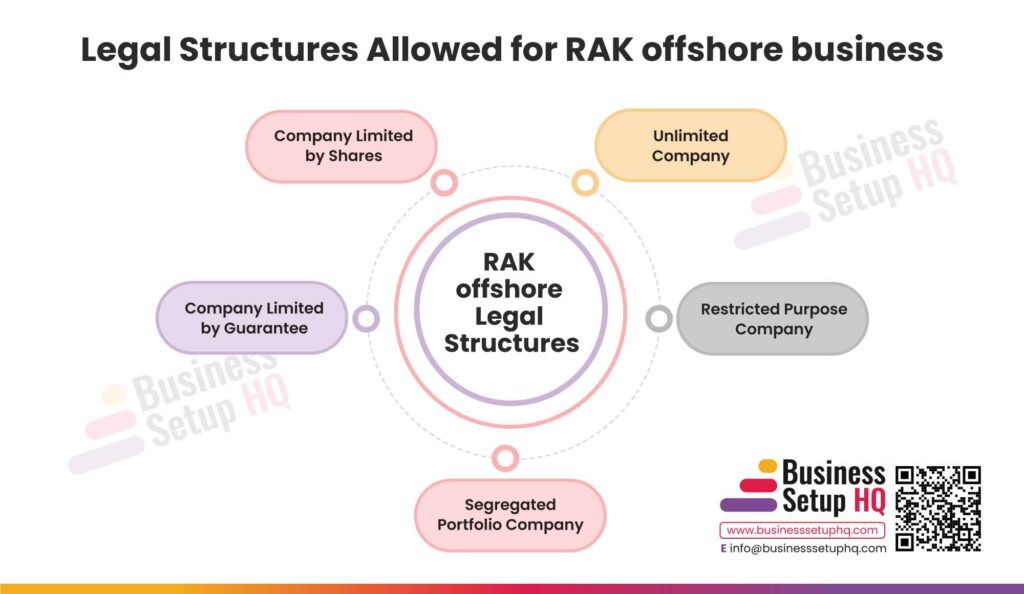Access Global Markets Through Offshore Company Formation
Navigating the World of International Service: Insights on Offshore Company Formation
Offshore Company Formation presents a strategic opportunity for international company operations. It supplies significant advantages, such as tax obligation optimization and improved privacy. However, the process is not without its challenges. Recognizing the complexities of various territories and regulatory requirements is vital. As companies consider these choices, the actions involved can considerably affect their long-term success. What are the essential variables that can bring about efficient overseas administration?
Understanding Offshore Firms: Definition and Purpose
Offshore business have come to be a focal factor in global service conversations due to their unique legal and economic structures. These entities are developed in jurisdictions beyond the owner's country of home, commonly with favorable governing atmospheres. Normally, overseas firms offer numerous functions, such as asset protection, tax optimization, and boosted personal privacy. They can operate in several industries consisting of innovation, financing, and profession, offering versatility for worldwide operations.The specifying feature of an offshore Company is its capacity to carry out company globally while taking advantage of lowered tax obligation responsibilities and regulative concerns. This structure interest financiers and entrepreneurs looking for to diversify their portfolios and manage risks successfully. Furthermore, many offshore territories use incentives to draw in international financial investment, leading to a boost in the Formation of these firms. Comprehending the definition and objective of overseas companies is essential for steering with the complexities of international business and capital flow.
Key Advantages of Offshore Company Formation
The Formation of an overseas Company provides several compelling advantages that bring in business owners and financiers alike. Among the primary advantages is tax optimization; lots of jurisdictions give favorable tax prices or exemptions, allowing businesses to make the most of revenues. Furthermore, offshore business usually enjoy greater privacy, as several jurisdictions have strict personal privacy legislations protecting the identities of Company proprietors and shareholders.Another substantial benefit is property security. Offshore entities can guard properties from political instability and economic recessions in the proprietor's home nation. Additionally, these firms can promote worldwide trade, offering simple access to international markets and streamlining cross-border transactions.The flexibility in company structure additionally interest local business owner, as offshore business can be tailored to fulfill specific operational demands. On the whole, the critical Formation of an offshore Company can lead to boosted financial safety and security, functional performance, and a robust international visibility.

Typical Challenges in Establishing Offshore Entities
Establishing offshore entities offers a number of difficulties that organizations need to browse. Key issues include regulative compliance, which can vary significantly throughout territories, and the influence of cultural differences on operations. Additionally, organizations should consider the expenses and dangers connected with keeping an offshore visibility, which can affect total stability.
Regulative Compliance Issues
When they look for to develop offshore entities, steering regulatory conformity concerns postures significant obstacles for companies. Each jurisdiction has its own collection of laws and legislations, which can vary extensively and may be challenging to navigate. Business frequently deal with obstacles pertaining to tax obligation compliance, anti-money laundering laws, and coverage needs. Furthermore, adjustments in international tax obligation laws can develop uncertainty, making it vital for organizations to stay updated on compliance obligations. Failing to adhere to these policies can lead to extreme penalties, including penalties and reputational damages. Consequently, understanding the lawful structure and involving with local specialists is vital for effective overseas operations, making sure that organizations can run within the boundaries of the regulation while optimizing their international technique.
Social Distinctions Effect

Expense Considerations and Threats
Guiding via the financial landscape of offshore entity Formation provides different cost considerations and inherent dangers. Initial setup costs typically consist of lawful charges, registration expenses, and compliance charges, which can gather substantially. Furthermore, recurring maintenance expenses such as yearly costs and bookkeeping services must be factored in. Moreover, rising and fall regulative atmospheres in different territories present risks, potentially leading to unanticipated expenses or legal issues. Businesses might likewise encounter obstacles connected to taxes, banking, and reputational issues, which can impact productivity and operational performance. As a result, potential entrepreneurs have to conduct comprehensive due persistance and financial projecting to mitigate these dangers and assure lasting growth. Comprehending these expense considerations is important for effective overseas business endeavors.
Steps to Establish an Offshore Company
Developing an offshore Company includes a number of essential actions that require cautious factor to consider. Trick factors consist of ensuring and selecting the proper territory compliance with regional guidelines, along with collecting essential paperwork. Recognizing these elements is crucial for a successful overseas organization setup.
Choosing the Right Jurisdiction
Choosing the ideal territory is vital for anyone looking to set up an offshore Company, as it can substantially affect the service's legal responsibilities, tax responsibilities, and functional ease. Different aspects must be taken into consideration, consisting of the political security, regulative atmosphere, and tax rewards offered by prospective jurisdictions. Popular options usually consist of countries with positive tax regimes, such as the British Virgin Islands or Cayman Islands, due to their reduced or no tax prices. Additionally, the convenience of working and the reputation of the territory can influence capitalist confidence and market accessibility. Inevitably, a well-informed choice based on detailed research study will ensure the overseas Company is positioned for long-term success and compliance with global standards.
Called For Documents and Compliance
When setting up an overseas Company, understanding the essential documentation and compliance needs is important to assure a smooth process. Secret records generally include a certification of incorporation, a memorandum and posts of organization, and proof of identification for shareholders and supervisors. Some territories may need extra info, such as business strategies or financial institution references. Compliance with regional regulations is important, which usually involves designating a registered representative and maintaining an authorized office. Routine reporting and adherence to tax obligations must likewise be considered. Failure to abide by these demands can cause penalties and even dissolution of the Company. Complete prep work and appointment with lawful professionals can help navigate these intricacies effectively.
Choosing the Right Jurisdiction for Your Offshore Company
Just how can one determine the most suitable territory for an overseas Company? Choosing the right territory needs mindful factor to consider of numerous aspects. The legal and tax setting plays a crucial function; jurisdictions with beneficial tax obligation routines may boost business productivity. Furthermore, the political stability and financial climate of a location can influence long-lasting business viability.Another vital facet is the accessibility of financial solutions and banking framework, which promote smooth operations. Possible service owners must also take into consideration the ease of working, consisting of the speed of enrollment and the clearness of regulations.Furthermore, language barriers and social differences can influence operations; therefore, lining up with a jurisdiction that straightens with company objectives and individual comfort is important. Eventually, complete research study and specialist guidance can direct business owners in making an informed choice that straightens with their strategic goals.
Conformity and Regulative Factors To Consider

Ideal Practices for Managing an Offshore Organization
Managing an offshore service calls for calculated preparation and meticulous execution to enhance efficiency and mitigate risks. Developing a robust compliance framework is essential to browse varying policies across jurisdictions. Normal audits and threat analyses aid recognize prospective vulnerabilities.Moreover, leveraging regional proficiency through collaborations with regional professionals can enhance operational effectiveness and cultural understanding. Making use of technology, such as cloud-based management systems, simplifies interaction and data administration, allowing much better decision-making. In addition, maintaining clear economic records and guaranteeing prompt tax obligation filings are vital to copyright the Company's honesty. Purchasing staff training and growth cultivates an experienced labor force, promoting development and adaptability.Finally, establishing clear efficiency metrics and crucial performance indicators (KPIs) helps assess business progression and notify calculated modifications. By adhering to these ideal practices, business can effectively manage their overseas procedures, making sure long-lasting success and sustainability in a competitive international marketplace.
Regularly Asked Concerns
What Is the Cost of Creating an Offshore Company?
The price of developing an offshore Company varies widely relying on jurisdiction, lawful demands, and solutions needed. Usually, expenditures can range from a few hundred to a number of thousand dollars, including registration, compliance, and yearly fees.
For how long Does It Take to Establish an Offshore Entity?
The time called for to establish an overseas entity varies substantially, typically varying from a few days to a number of weeks (offshore company formation). Factors influencing this period include territory, called for documentation, and the performance of the provider involved
Can People Kind Offshore Companies Without a Service Partner?
Individuals can indeed develop overseas firms without a company companion. Several jurisdictions enable single-member entities, empowering business owners to establish and manage their services individually, while still gaining from possible tax obligation advantages and legal securities.
Exist Any Tax Obligation Benefits for Foreign Investors?

What Sort Of Organizations Frequently Utilize Offshore Business?
Offshore business are frequently made use of by different sectors, consisting of finance, ecommerce, and technology. These entities typically offer purposes such as possession security, tax obligation optimization, and privacy, attracting both international firms and specific entrepreneurs. Offshore business have actually become a focal point in international organization discussions due to their special lawful and financial frameworks. They can run in multiple industries consisting of financing, profession, and modern technology, providing adaptability for worldwide operations.The defining attribute of an overseas Company is its capacity to carry out service globally while profiting from reduced tax responsibilities and governing burdens. Additionally, offshore companies commonly appreciate greater confidentiality, as many jurisdictions have stringent privacy laws safeguarding the identities of Company owners and shareholders.Another substantial benefit is property security. These business can assist in worldwide profession, offering simple access to global markets and streamlining cross-border transactions.The versatility in business structure also allures to organization proprietors, as overseas business can be tailored to fulfill details operational needs. Picking the best jurisdiction is crucial for any individual looking to set up an offshore Company, as it can substantially influence the service's lawful commitments, tax obligation liabilities, and functional ease.